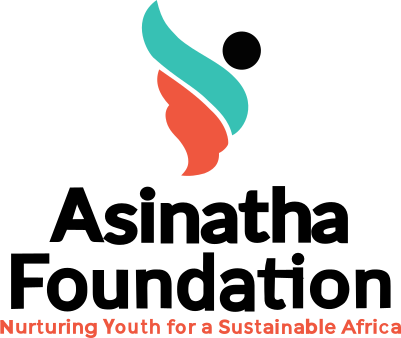S omething shifts when you spend time with students not just teaching, but listening. You begin to see them not only as learners but as young people with stories, responsibilities, and dreams carried quietly beneath their uniforms.
Through our Elevate 360 Program at Asinatha Foundation, we have had the privilege of working with students in seed secondary schools. And what we have learned has gone beyond leadership theory or facilitation. It’s been about real life.

Many of the students we work with attend school during the day and hustle in the evenings selling goods, helping in shops, doing house chores all to support their families or pay their own school fees. For some, these side jobs aren’t optional. They are a necessity. One boy told us, “I wash cars on weekends to buy books.” Another shared how she helps her aunt sell fruits every evening before doing homework under candlelight.
It’s humbling!
And then you realize, school is not just a place of learning, it’s their safe space. A place where they don’t have to worry about earning. A place where they get their one decent meal of the day. That meal alone can be the reason they come. It's something we have come to witness firsthand, time and again.

Because of this, we don’t just come with training sessions. We come with a drink and soon, we hope to consistently offer a light snack. It may seem small, but it matters. We also bring moments of joy games, laughter, reflections, and team-building. These simple touches help create an environment where students feel human again where they can pause, be seen, and belong.

📚 The Research That Confirms What We See
This isn’t just our observation, it’s backed by evidence.
A report from Uganda Bureau of Statistics (UBOS, 2020) revealed that 43% of adolescents aged 14–17 are engaged in economic activities, with many balancing school and work to survive. The pressures of school fees, transport, food, and home responsibilities are real and ongoing.
Globally, the World Food Programme (WFP) confirms that providing meals at school improves attendance, retention, and learning outcomes. A hungry child cannot focus. But a nourished child is more likely to stay in school, perform better, and feel safe.
Additionally, a UNESCO (2023) report on Sub-Saharan Africa highlights that economic hardship is one of the top barriers to completing secondary education, especially for students in rural and underserved communities.
Even a simple snack during co-curricular programs has been found to boost engagement and help students associate school with positive, empowering experiences.
So when we hand over a juice box or lead a game of charades during our sessions, it’s not just for fun. It’s about restoring dignity, easing stress, and reminding each student: “You matter.”
💬 Why It All Matters
The students we meet through Elevate 360 Club are already showing resilience. They show up, stay present, and dare to dream despite challenges that many adults would struggle to handle.
When we talk about building leaders, this is where it starts acknowledging their lived reality, and showing up for them in practical, thoughtful ways.
Elevate 360 may be a leadership program on paper. But in practice, it’s becoming something much more a safe space, a support system, and a small breath of relief in lives that are often stretched thin.
We are proud of them. And we are proud to keep walking this journey one session, one snack, one conversation at a time.
